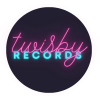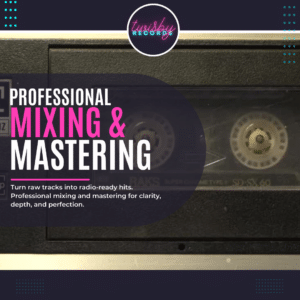Releasing music anonymously used to be simple.
Pick a fake name, upload your tracks, and vanish into the internet.
But 2025 changed the rules.
Distributors are stricter, AI can trace your voice, and streaming platforms are obsessed with data verification. It’s not impossible to stay anonymous, but you have to be intentional now.
Most guides online are outdated or flat-out wrong. I know because I’ve actually helped an artist go fully anonymous. Eight years later, they’re still active, still getting paid, and no one knows who they are.
It takes more than a mask and an alias.
You have to protect your identity legally, digitally, and creatively all while still releasing music that connects.
Let’s walk through what actually works in 2025, and where most people blow it.
Table of Contents
What “Anonymous” Really Means Now
Being anonymous isn’t just hiding your face. It’s separating you the person from you the artist in every system that tracks, verifies, or pays you.
That means:
- No personal name on distributor profiles.
- No identifying data in your song files.
- No crossover between your real bank info and your artist payments.
- No metadata leaks, no shared logins, no connections to your main email.
AI is smarter now. It can identify vocal patterns, metadata trails, and even “digital fingerprints” in upload histories. If you’re sloppy, it’ll connect your anonymous project to your real one before you even drop a second track.
That’s why you have to build it right the first time.
Step 1: Choose a Stage Name and Persona That Actually Works
Your name is your first layer of armor.
It should feel natural enough to be real, but unique enough not to collide with existing artists.
Avoid names that sound like AI projects (“x3ll0wave”) or obvious pseudonyms.
If you’re serious about this, spend a night just brainstorming who this character is.
Ask yourself:
- Would this name make sense if I saw it on Spotify?
- Does it fit the kind of music I make?
- Could it survive a Google search without connecting back to me?
If you’re building a visual identity, plan it out now. Masks, digital avatars, motion graphics, all fair game. Think Sleep Token or Gorillaz level planning.
Because if you leave holes in the story, people will start digging.
Step 2: Protect Your Real Identity (Legally)
This is the part no one wants to do, but it’s what separates people who stay hidden from people who get doxxed.
You need an LLC, specifically one that doesn’t tie your real name to your artist alias.
An anonymous LLC does exactly that.
Only a few states allow true anonymity (Delaware, Nevada, New Mexico, and Wyoming). The process is simple:
- File an LLC under your stage name.
- Use a registered agent as your public contact.
- Keep your personal name off all public records.
I always recommend ZenBusiness because they handle the legal side for you and let you pick anonymity-friendly states without the headache. Tell them upfront that you’re doing this for privacy they’ll make sure you’re compliant. (You have attorney client privilege with firms like these, so you are safe using your real name)
Once your LLC is live, register for an EIN on the IRS website (free). You’ll need it to open a business bank account and to get paid under your artist name, not your personal one.
This gives you a clean divide:
your life → your business → your art.
That wall matters more than any mask.
Step 3: Open a Business Bank Account
This step is boring, but it’s how you stop leaking your real identity.
When you start making money, you don’t want “John Doe” showing up on receipts, credits, or payout details.
Walk into a bank with your LLC paperwork and EIN, and open a business account tied to your artist alias.
Ask them to issue cards and digital access under the LLC name only. Some banks will resist, push back. You’re not doing anything shady; you’re just keeping personal and professional separate. If the bank refuses, see Step 11, and add a member of your team to the account who you trust to control your money.
This setup also makes your life easier at tax time.
Everything you buy for your music like plugins, mics, domain names, travel — becomes a deductible expense.
If you don’t have an LLC yet, fix that first. Here’s where to start it.
Step 4: Claim Your Digital Territory
If you’re serious about this, buy your digital real estate before you tell a soul.
Grab a domain that matches your artist name and lock down matching usernames on all major platforms, even if you won’t use them right away.
Use your LLC or your anonymous business info for all registrations.
That includes your:
- Domain (through Squarespace or Namecheap)
- Email (via Google Workspace under your domain)
- Social media (Instagram, YouTube, TikTok, etc.)
Create a professional email like info@yourartist.com, not something that ties back to your main Gmail.
And if you want an easy domain/email combo, Google Workspace under a squarespace domain keeps it clean, secure, and simple to manage multiple aliases.
Just remember if the registration shows your real name in WHOIS records, use a privacy shield or your registered agent’s details instead.
Step 5: AI Is Watching You (2025 Update)
Artificial intelligence made anonymity harder.
It used to be enough to delete your name from metadata. Now, AI can literally recognize you by your voice.
Every major streaming platform uses AI-based audio fingerprinting.
If you’ve ever released music publicly under your real name, the algorithm already knows your sound. Same vocal timbre, same mastering chain? It’ll flag a match.
Even if you use new branding, AI can still cross-reference:
- ID3 tags in your audio file metadata.
- Distribution logs that record the IP you uploaded from.
- Visuals that reuse your real social assets.
So treat anonymity like cybersecurity.
Use different emails, IPs, DAW sessions, and upload environments. Strip all metadata before you release.
If you want to go all-in, record and upload from a clean device.
It sounds excessive, until you realize how easy it is for AI to spot patterns humans can’t.
Anonymity now means discipline.
AI can’t expose what it can’t track.
Step 6: Pick the Right Distributor
This is where most artists get exposed without realizing it.
Distributors handle your uploads, metadata, and royalty payments, and most of them now require full legal verification.
Here’s what actually works in 2025:
- DistroKid – still the best option if you’re anonymous. You can use a pseudonym publicly while keeping your LLC and tax details private on the backend. It’s fast, secure, and discreet, I use it myself, so does our anonymous friend.
- RouteNote – allows aliases, good for free uploads and indie releases.
- Amuse – okay for smaller projects but stricter under paid tiers.
- CD Baby / TuneCore – avoid them. They’ve fully switched to ID-verified uploads and public credit linking.
If you haven’t already, read our breakdown on why every musician needs an LLC. It explains why your distributor setup only works safely once your business entity exists.
And while you’re setting up, make sure your files are export-ready.
We covered that in WAV vs MP3: What Artists Get Wrong About File Formats.
Your anonymity is only as strong as the weakest link…. literally.
Step 7: Trademark Your Stage Name
Nothing kills an alias faster than someone trademarking it before you do. And there are people out there who find new alias, trademark them, and essentially blackmail and scalp you as a full time job.
Once your music starts moving, lock your name down through the USPTO (United States Patent and Trademark Office).
You can do this yourself or use a trademark attorney if you want it airtight.
Search their database first, if your name’s clean, file immediately.
It’ll cost a couple hundred bucks, but it’s cheaper than losing your identity later.
Step 8: Register Your Stage Name With a PRO
Even anonymous artists need to get paid.
Register your alias with a PRO (Performing Rights Organization) like ASCAP, BMI, or SESAC.
(We Use ASCAP, but this is all preference)
Each has slightly different verification rules, so talk to them directly about your anonymity goal.
For reference: BMI’s registration guide explains their process clearly.
If you’re using your LLC to manage royalties, make sure the PRO account and payment info match it, not your personal identity.
That’s how our anonymous client’s been collecting royalties for eight years without anyone knowing who they are, they even use the same ASCAP account for their personal project and theres been no issues. They just have a stage name set up inside of their account that contains their alias.
Step 9: Build Your Social Presence Carefully
You’ll need social profiles to promote your music, but how you set them up determines whether you stay hidden.
Start clean.
New browser, new Google account, new device if possible. Always use a VPN.
Then create your pages using your LLC email and alias-only branding.
Avoid posting anything traceable: backgrounds, landmarks, your home setup, all breadcrumbs. Last thing you want is a Josemonkey superfan finding you.
You don’t have to fake your personality. Just filter what connects to your real one.
And if you need a number for two-factor authentication, use Google Voice or a separate SIM card.
Your job isn’t to disappear.
It’s to separate the art from the artist.
Step 10: Keep It a Secret
This one’s harder than it sounds.
Don’t tell your parents. Don’t tell your friends.
And if you do, make sure they understand what’s at stake.
I once worked with an artist who built an entire alias from scratch. A new LLC, new domain, fake backstory/character only for his mom to share his song on Facebook with,
“My son’s new anonymous project!”
It was hilarious and horrifying at the same time. We fixed it fast, but that one post could’ve ended the project.
Protecting your anonymity isn’t paranoia, it’s protecting your work.
Your family and friends absolutely WILL NOT understand, so it’s very important that you trust them. I even lean towards not telling them at all, because if they listen to your music it can throw off the streaming and social media algorithms, (if your mom listens to elvis, and your friends listen to Doechii, but you make edm music. When your friends engage with your music the algorithm doesn’t know who to recommend your music to because it doesn’t understand that the only thing your fans have in common is YOU, so it shows your music to the wrong people, who don’t like it, and it assumes its bad and stops recommending it. But thats another article for another time)
IF YOU DO WANT TO TELL SOMEONE, be sure to have NDA’s (Non Disclosure Agreements) on stand by.
Step 11: Secure Your Music and Metadata Long-Term
Finishing the upload doesn’t mean your anonymity is safe forever. Every update, remix, and metadata edit is another chance for your real name to slip back in.
Here’s what to lock down:
- Store masters and stems under your LLC. Keep them in a labeled cloud folder or hard drive owned by the business, not your personal account.
- Back up clean versions of your files. Strip personal metadata before every export so you never accidentally re-upload an old file with identifying info.
- Use fresh project templates. Old DAW sessions sometimes store usernames, file paths, or system names that can be traced.
- Check new distributor features yearly. Some platforms start auto-linking credits or PRO data, stay ahead of those policy changes.
Treat maintenance as part of your creative process. Privacy isn’t one action, it’s a habit.
Step 12: Build a Trusted Micro-Team
Going fully solo sounds safer, but at some point you’ll need help, mix engineers, visual designers, someone to hold your debit card, maybe a manager or attorney.
When that time comes, hand-pick a tiny circle of people who respect the boundary between you and the alias.
- Use NDAs. A simple non-disclosure agreement keeps everyone legally obligated to protect your identity.
- Keep communication in one secure thread. Use your artist email or an encrypted app; don’t mix personal DMs.
- Vet collaborators. If someone overshares online or name-drops clients, they’re a liability.
- Pay them through your LLC. Keeps everything clean, professional, and traceable without exposing you.
The right two or three people can make you unstoppable while keeping the mask firmly in place.
FAQ
Can you still release music anonymously in 2025?
Yes. You can release music anonymously by forming an LLC, using a pseudonym with a distributor like DistroKid, stripping metadata, and separating all financial and digital accounts from your personal identity.
Do you need a business to release music anonymously?
Yes. Forming an LLC lets you legally separate your music income from your real identity and receive royalties under your stage name. You can set one up through ZenBusiness, which supports anonymous filings in Delaware, Nevada, New Mexico, and Wyoming.
Which distributors allow anonymous uploads?
DistroKid and RouteNote still allow artist pseudonyms in 2025. Amuse offers limited support, while TuneCore and CD Baby now require ID verification and may expose public names.
Can AI really expose anonymous artists?
Yes. AI systems can recognize your voice, cross-match upload IP addresses, and analyze hidden file metadata. To stay anonymous, use clean devices, new accounts, and strip identifying data before uploading.
Can I get paid anonymously for my streams?
Yes, but you’ll still need a legal entity (LLC) and business bank account. That lets streaming platforms deposit royalties to your company name instead of your personal one.
Can I perform live while staying anonymous?
Absolutely. Many artists do, you just need consistency in your presentation. Use masks, lighting, and pseudonyms across every appearance so the story fits.
BUT you now add an extra layer of security needed. You’ll need a well thought out plan to make sure you aren’t followed to where you change from person to persona. This is something you will unfortunately have to figure out yourself. I recommend talking to a security firm if you can, as disclosing this info could put other anonymous artists at risk.
Can I register my anonymous songs with a PRO like ASCAP or BMI?
Yes. You can list your stage name as your writer or publisher name and direct payments to your LLC. Be upfront with the PRO about your anonymity so their team can set it up correctly.
Should I trademark my stage name if I’m anonymous?
Definitely. Trademarking prevents others from using or stealing your alias. You can register through the USPTO or a trademark attorney using your LLC information.
Can I release AI-generated music anonymously?
…… Sigh……Yes, though it’s tricky. Make sure your distribution platform allows AI-assisted tracks and double-check that the metadata doesn’t trace back to you.
But please don’t release AI music. There’s enough of that out there already. You can use Ai as a TOOL to help get over writers block, or with sound design, but it’s just not as fun or rewarding.
What’s the safest way to upload my music files?
Export in WAV format, strip all ID3 tags, and upload through your distributor’s secure dashboard. If you’re unsure about quality or format, check out WAV vs MP3: What Artists Get Wrong About File Formats.
What’s the first step if I’m starting from scratch?
Start by forming your LLC through ZenBusiness, then open your business bank account. From there, set up your alias, domain, and distributor account through DistroKid.
The Bottom Line
Anonymity today isn’t rebellion, it’s carefully thought out branding and design.
It’s building your own system where your music can live without risking who you are.
That takes planning. It takes self-control. And it takes handling the boring parts no one else talks about.
But when it’s done right, it’s freedom.
Freedom to create what you want without explaining yourself.
Freedom to make money without sacrificing privacy.
Freedom to be whoever the hell you want.
Freedom to enjoy a beer at a bar, without people asking for your picture every 5 minutes.
If you’re serious about staying anonymous, start here:
- Form your LLC with ZenBusiness
- Distribute your music privately with DistroKid
- And if you need your tracks to sound like they belong next to the pros we can help with that too.
















